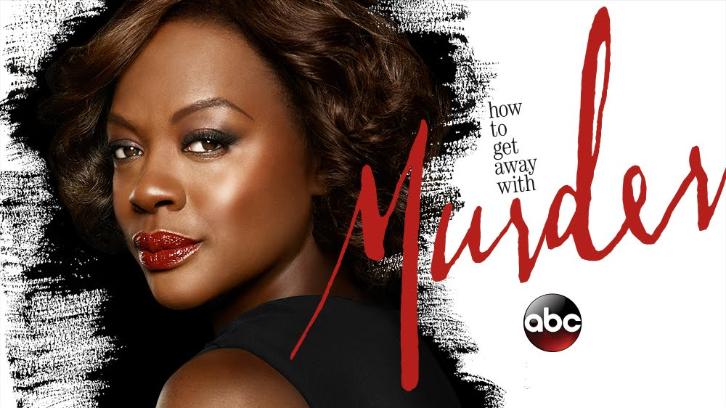
by June Jeong, opinions editor
*major spoiler alert*: This is an overview review of the mid-season return of the third season of HTGAWM
The highly regarded, award-winning show How To Get Away With Murder came back on the 26th of January after a two-month break. The show features a group of determined, talented law students and their brilliant criminal defense professor (Annalise Keating, played by Viola Davis) become entangled when one night, they become involved in a murder plot that forever alters their lives; the show explores what happens following this traumatic, horrible incident.
The show’s mid-season launch wastes no time delving back into the complicated, dark world that Annalise and her students live in. After the shocking and sudden death of Wes, the tenth episode of season three, “We’re Bad People,” addresses how the Keating 5 cope with the news and what events with Annalise ensue in jail. The episode has several alternate universe sequences in which Connor, Laurel, Michaela, and Asher interact with Wes. What struck me was Connor’s oddly unaffected and insensitive behavior. After making cruel and harsh remarks about Wes only moments following his death, Connor was punched by Asher who quickly jumped to Wes’s defense. The response that Michaela had to this situation was truly disappointing: instead of being angry at Connor, she berated Asher for behaving violently, though his response was clearly justified. And speaking of Connor, his dynamic with Oliver is baffling; though I feel that their fighting in this episode is a natural progression, at times it just feels incredibly forced and I can’t understand why Oliver is still around.
In “Not Everything’s About Annalise,” Annalise is at an all-time low, folding into herself in jail. She is noticeably frail, frightened, and uncertain-qualities that are very unlike Annalise. It is deeply disheartening to see her in this state, and HTGAWM seems to portray the terrors of incarceration incredibly. Though there were elements by which this episode fell flat in Frank’s confession (I didn’t understand his reasoning for that….it just worsens the situation? Annalise is still being charged as co-conspirator), this episode was also truly necessary for development of the storyline and it had several successes. I loved how the relationship between Bonnie and Laurel is growing; their connection through Frank allows them to understand one another more readily. Once Nate tries to investigate Laurel, she calls Bonnie and tells her that Frank didnt know about the pregnancy. Instantaneously, they realize that Frank has been lying in order to sacrifice himself for Annalise’s sake.
In “Go Cry Somewhere Else,” the plot becomes increasingly convoluted as the prosecution attempts to bring up a new charge against Annalise while Nate brings to light new information that could damage him. We find out that Wes’s body is gone (?????) and it is unclear who had to do with it. The DA’s office wanting to take down Annalise seems too predictable, and no one at the office resents or despises her enough to get that involved. How To Get Away With Murder seems to be digging itself out of a difficult narrative hole, and right now the complex plot takes away from the focus on the brilliant characters the show has. For example, this episode reveals interesting insight into Oliver’s character when it is revealed that he kept a flash-drive containing the contents of Annalise’s phone (which she asked him to clear the night that Wes died). We learn that Oliver isn’t nearly as innocent and uncomplicated as the others see him; he lies with no hesitation.
In “It’s War,” Annalise is out of jail and uses her shrewdness to get out of a bad situation with the DA’s office. This doesn’t mean she won’t have to suffer the awful ramifications and drama that comes with being labeled a murderer. For the first part of this episode, I felt disappointed by Annalise’s lack of drive that so readily defines her. But by the end of the episode, she seems more Annalise than ever, ready to face the world. Laurel and Annalise’s moment in this episode was so well executed and delivered that it was hard not to get teary-eyed. The raw anger and pain in Laurel’s voice is evident, and even normally stone-cold Annalise apologizes and finally embraces her suppressed grief.
In conclusion, this show examines difficult, heavy topics such as race relations, incarceration, abuse, and moral ambiguity with extraordinary ease and mastery. It also features a number of truly skilled actors and actresses that make the characters so human that they are impossible not to despise or fall in love with.

